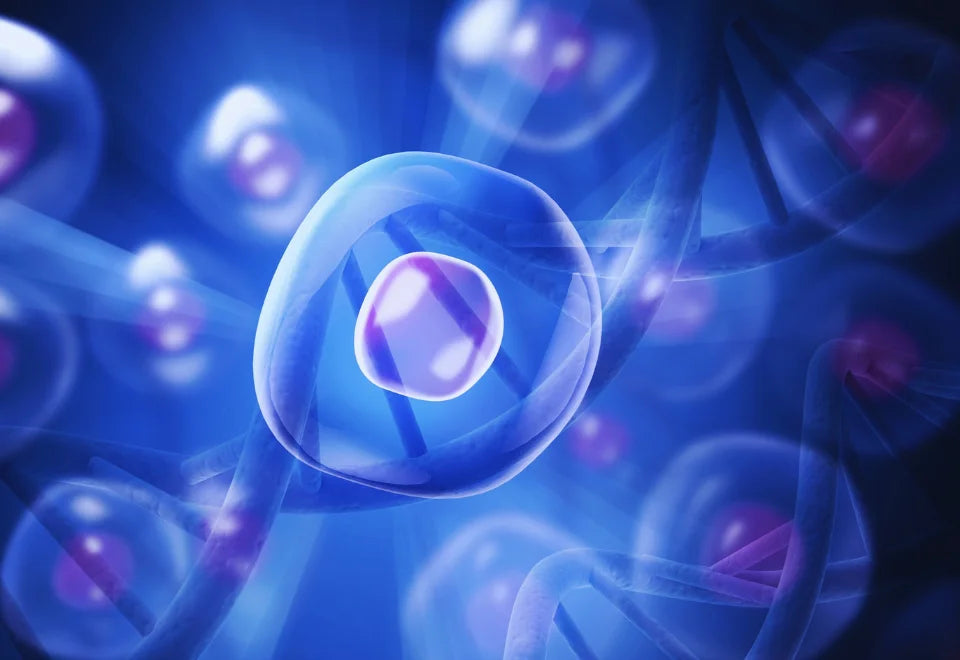Ever wondered why you wake up feeling refreshed after a good night's sleep? Or why, despite spending hours in bed, you sometimes feel exhausted?
The answer lies in the quality of your sleep and the body’s ability to recover during the night. Nighttime recovery is more than just rest; it's a critical period where your body undergoes essential repair processes that influence your overall health and ageing.
What Is Nighttime Recovery?
Nighttime recovery refers to the body’s natural regenerative processes that occur during sleep: tissue repair, hormone regulation, immune system strengthening, and memory consolidation. This recovery period is essential for physical rejuvenation and mental clarity.
The Role of Deep Sleep in Recovery
Deep sleep, also known as slow-wave sleep, is the most restorative phase of sleep. During this stage, your body releases growth hormones, repairs damaged cells and tissues, and reinforces the immune system. Deep sleep is also when your brain clears out toxins that accumulate throughout the day, which is linked to a reduced risk of neurodegenerative diseases like Alzheimer’s (Zhang W et al., 2024).
How Sleep Aids Cellular Repair
Sleep is a time when your body undergoes various repair mechanisms at the cellular level. During deep sleep, the production of proteins increases, which are essential for cell growth and repair. Moreover, sleep supports the immune system, helping the body fight off infections and inflammation.
Mitochondrial Function and Sleep
Mitochondria, the powerhouses of the cell, play a crucial role in energy production. Quality sleep ensures optimal mitochondrial function, which is essential for energy metabolism and reducing oxidative stress. Disrupted sleep can impair mitochondrial function, leading to decreased energy levels and increased ageing.
The Impact of Sleep on Ageing
As we age, the quality and quantity of sleep often declines. This reduction in sleep quality can accelerate the ageing process by impairing cellular repair mechanisms and increasing inflammation. Studies have shown that poor sleep is associated with various age-related diseases, including cardiovascular disease, diabetes, and cognitive decline.
Deep Sleep and Ageing
Deep sleep plays a crucial role in slowing down the ageing process. It helps in the release of melatonin, a hormone that regulates sleep-wake cycles and has antioxidant properties. Melatonin neutralizes harmful free radicals, reducing oxidative stress and cellular damage, which are key contributors to ageing.
Enhancing Sleep Quality with Supplements
To support nighttime recovery, various sleep supplements can be incorporated into your routine.
Melatonin and Sleep Quality
Melatonin supplements are widely used to regulate sleep patterns, especially in individuals with insomnia or jet lag. By mimicking the body's natural melatonin production, these supplements can help improve sleep onset and quality (Fatemeh G et al., 2022).
Magnesium Supplements
Magnesium plays a vital role in sleep regulation by activating the parasympathetic nervous system, which helps the body relax. It also helps regulate neurotransmitters like GABA that promote restful sleep. Magnesium supplements have been shown to improve sleep quality, especially in older adults.
L-Theanine for Relaxation and Focus
L-Theanine, an amino acid found in green tea, promotes calmness without sedation. It helps reduce stress-related brain activity and supports a relaxed but alert mental state. It also enhances the effectiveness of other sleep supplements like melatonin when taken together.
Ashwagandha for Stress Reduction
Ashwagandha is a powerful adaptogen known for its stress-reducing properties. By lowering cortisol levels and calming the nervous system, it can improve sleep onset and quality. Studies have shown that Ashwagandha extract enhances sleep in individuals with insomnia and high stress (Deshpande A et al., 2020).
Calcium AKG and Mitochondrial Health
Calcium AKG is a compound known for its anti-ageing potential. It plays a role in the Krebs cycle, aiding cellular energy production and reducing systemic inflammation. Supplementing with Ca-AKG has been shown to support mitochondrial health, promote collagen synthesis, and reduce markers of biological ageing.
Anti-Ageing Sleep Supplements: Do They Work?
Anti-ageing sleep supplements often combine melatonin, magnesium, GABA, L-theanine, and sometimes calcium AKG to support both sleep and cellular longevity. By enhancing the depth and efficiency of sleep, these supplements aid in:
- Reducing inflammation
- Promoting DNA repair
- Supporting cognitive clarity
- Improving skin elasticity and collagen production
- Maintaining hormonal balance
These formulations help target the root causes of sleep-related ageing, making them an essential part of your nightly wellness routine.
Conclusion
Nighttime recovery is a cornerstone of health and longevity. Quality sleep supports cellular repair, maintains mitochondrial function, and slows the ageing process. Incorporating sleep supplements like melatonin, magnesium, and calcium AKG can enhance sleep quality and promote healthier ageing.
FAQs
What are the best nighttime recovery supplements?
The most effective nighttime recovery supplements include melatonin, magnesium, l-theanine, ashwagandha, and calcium AKG. These ingredients help promote deeper sleep, support cellular repair, and enhance your overall anti-ageing sleep routine.
How does sleep support mitochondrial function?
During restorative sleep, particularly deep sleep, the body optimizes mitochondrial activity. This helps repair damaged cells, improve energy production, and reduce oxidative stress—key factors in long-term vitality and health.
Can sleep supplements really slow ageing?
Yes, consistent use of high-quality sleep supplements can improve sleep quality and enhance cellular repair. This slows biological ageing and reduces the risk of age-related conditions like memory loss and fatigue.
What role does calcium AKG play in ageing?
Calcium AKG supports the body’s energy cycle, helps reduce systemic inflammation, and promotes healthy skin and muscle function—all of which contribute to a slower, healthier ageing process.

























Leave a comment
All comments are moderated before being published.
This site is protected by hCaptcha and the hCaptcha Privacy Policy and Terms of Service apply.